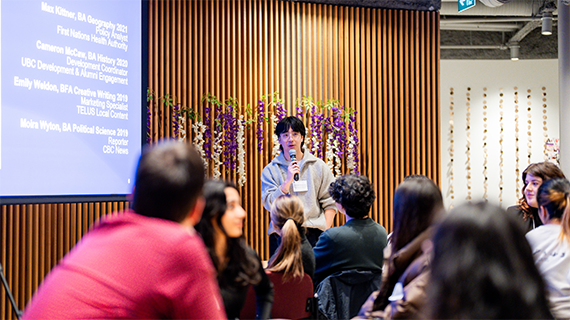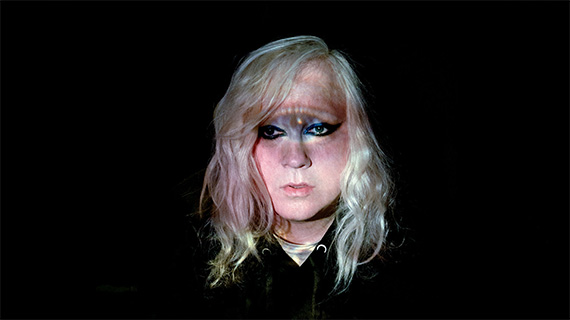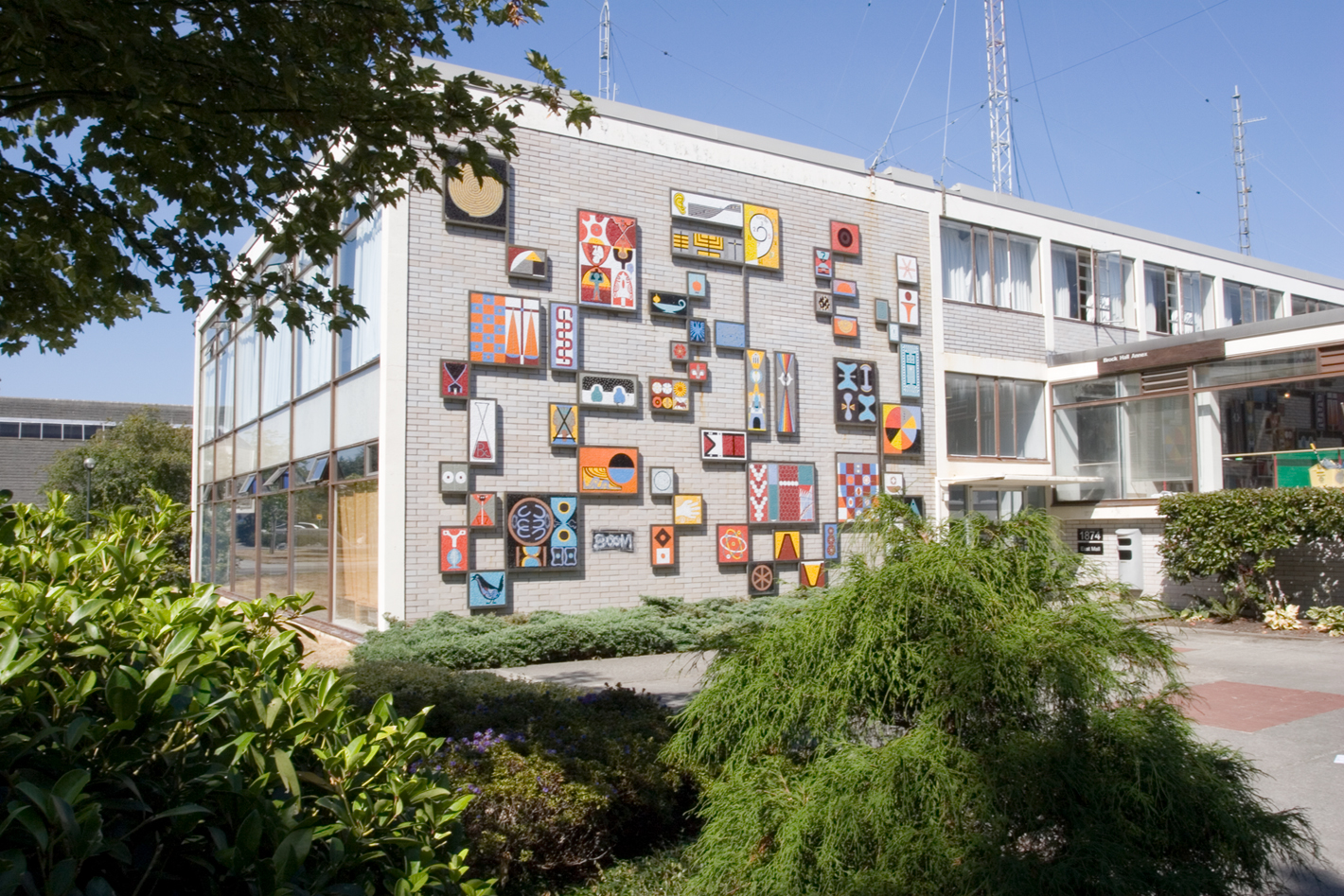

Fourth-year Honours Sociology student Amanda Cheong is the 2012 recipient of the Dean’s Outstanding Leader in the Faculty of Arts Award. This week, we sat down with her and discussed her research on stateless Chinese-Bruneian immigrants and her time as the co-president of the Sociology Students’ Association.
Tell us a little about your Honours Sociology degree.
I’m interested in pursuing a career in academia, so my research interests centre on questions of migration, transnationalism, and citizenship – particularly in relation to the crisis of statelessness in Southeast Asia – and using ethnographic research methods.
Throughout my university career, I’ve been focused on getting as much research experience as possible, through programs such as the Arts Undergraduate Research Award (AURA), working with other professors, doing my own directed studies or setting up a Student Directed Seminar (SDS) because I feel really strongly about getting other Arts students involved in research.
This year you presented your project, “The Search for Belonging: Conceptions of National Identity and Civic Participation among Stateless Chinese-Bruneian Immigrants in Vancouver”, at the Multidisciplinary Undergraduate Research Conference (MURC). What’s the background of this issue?
This project is part of my honours thesis, which focuses on stateless Chinese-Bruneian immigrants in Vancouver. In Brunei, a multi-ethnic former British colony in Southeast Asia, citizenship isn’t granted automatically to everyone who is born within its borders. Citizenship is determined by ethnic descent, which has allowed the Islamic Malay government to protect the interest of the dominant ethnic group in the country, to the extreme disadvantage of the other ethnic groups that live there – including a sizeable Chinese minority.
How did you first become involved with this research?
My parents are stateless Chinese Bruneians who came to Canada in 1988 in the proverbial search for a better life. The question occurred to me, “Oh, if you didn’t have citizenship, what did it say on your passport?” and my parents told me that it just said “Stateless”. I thought that not having citizenship in the country you were born and raised in was such an odd and bizarre term and state of being. I did more research on it and found out that statelessness is a relatively invisible issue in the international community. There are United Nations conventions defining statelessness, but relatively little has been done to document the lives of people who have been denied a nationality, so that’s what my project seeks to do.
So I interviewed stateless Chinese Bruneians living in the Greater Vancouver area and asked them questions about what life was like back home, why they decided to immigrate to Canada, and how the search for citizenship had shaped their migratory patterns in their decisions to go to another country. My thesis focuses specifically on how the migration and resettlement process changes their conceptions of national identity and attitudes towards civic participation in society.
What do you think is the value of doing research in an Arts undergraduate degree?
I think there’s a really big misconception that Arts isn’t practical, and getting a degree in Arts doesn’t lead to any practical life skills, but I wholeheartedly disagree. I major in Sociology, and I see how what I learn in university applies in the real world on a daily basis. My particular focus is on tackling issues of social inequality through a sociological or academic lens, and as an undergraduate student, it’s really important to be able to use what you’re learning in the classroom and apply it to real-life contexts, because that’s when learning really happens.
You mentioned that you coordinated a Student Directed Seminar (SDS). What was it about?
I’m coordinating a SDS this term, and it’s called “Immigration and Multicultural Community Development”. The course focuses on the role of civil society and grassroots organizations in immigrants’ settlement experiences, and it’s the first SDS in the Faculty of Arts to include a Community Service Learning (CSL) component. We’re working with the Multicultural Youth Circle Action Team, which is an immigrant and refugee youth leadership group that’s part of the Immigrant Services Society of British Columbia. They’re interested in conducting a peer-led survey of English language learning systems in BC schools, so our class is conducting background research to help inform their survey.
How has being the co-president of the Sociology Students’ Association (SSA) tied into your experience as a Sociology student?
Carven Li and I are co-presidents of the SSA, and we both really love Sociology. I have a lot of pride for the department that I’m in, and I’ve been using my platform as co-president to give back to the department and encourage more student involvement, especially encouraging interest in research and academia among Sociology students. Planning various events has also given Sociology students an opportunity to get together in a more informal setting.
What were some of the highlights of your presidency?
Well, right now we’re hosting our year-end barbecue, and that’s just one of the events we’ve done this year. Some of the members of the SSA executive – Linda Chan, Anita Sehagic, Sasha Duncan – are trying to put together an undergraduate conference and research grant specifically for Sociology students. We know that many Sociology students want to fund their research or go to conferences outside Vancouver, and are not always able to access funding to do so. We’re trying to fill that gap and provide that for them, so that’s something that the SSA is working on right now. I can’t take any credit for that, but I think it’s a really good idea and a really important thing to do as finances play a pretty big role in what students can do in their undergraduate experiences. If we make the opportunities that are available more transparent, and are able to provide financial support, more students will be more inclined to do research and share it with the world.
What advice do you have for students who are looking to get involved in research or with their department?
Don’t be afraid to seek out mentors and learn from fellow students who’ve already done similar things that you want to do, or from professors who are eager to take students under their wing, and show them what the research process is like. The professors that I have had throughout my undergraduate career have been extremely supportive and helpful, and I owe a lot to them.
What do you think is the most important lesson you’ve taken away from your time at UBC Arts?
My most important lesson is that learning doesn’t just happen in the classroom, it’s everywhere and we have a responsibility not to let that learning go to waste. We should apply what we’ve learned in the classroom and realize that there are important things that we can contribute not just to academia, but also to our local communities.
What are some of your plans post-graduation?
My next step is to earn my Ph.D in Sociology, focusing on migration, citizenship and statelessness. So in a couple of years, I’m hoping to go to graduate school. In the meantime, I’m moving to Kuala Lumpur next year to work with a child rights advocacy group, to learn more about and help conduct research on the human rights of stateless and undocumented children in Malaysia.


